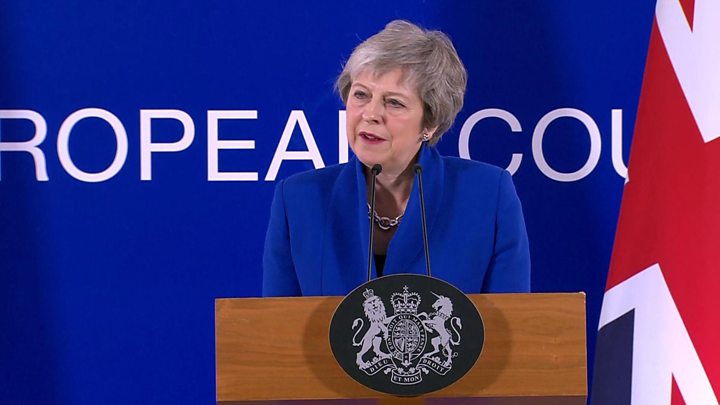No-deal EU exit for Britain far more likely if parliament rejects May’s deal

LONDON, (DNA) – Britain is more likely to end up leaving the European Union without a deal if parliament rejects the agreement Prime Minister Theresa May has negotiated with Brussels, Brexit Minister Stephen Barclay said on Thursday.
With less than three months until Brexit lawmakers will make a pivotal decision later this month – accept May’s plans for a managed exit and relatively close economic ties, or reject the deal and spawn huge uncertainty about the country’s next steps.
“No deal will be far more likely if MPs reject the government’s Brexit deal later this month,” Barclay wrote, arguing that May’s plan was the only “workable deal” available.
May is seeking extra reassurances from Brussels to help persuade sceptical lawmakers within her own party, and the small Northern Irish party which props up her minority government, to back her plan.
The vote is due in the week beginning on January 14. Barclay, whose primary remit is to make sure Britain is ready in case a deal cannot be reached, said that next week the government would step up its campaign to make sure citizens are prepared for such an outcome.
“On Tuesday, we will start a new phase in our public information campaign, using radio and social media to further raise awareness about the need to prepare,” he wrote.
Sterling continued to fall against the US dollar, driven in part by growing concerns over the course of the Brexit process.
Earlier this week, the British government announced to spend more than 100 million pounds ($130 million) chartering extra sea ferries to ease cross-channel congestion if the UK fails to secure a trade deal before leaving the European Union in March.
Just three months before the UK is due to leave the world’s largest bloc, the risk of a no-deal Brexit is rising – the nightmare scenario for many businesses, which are now planning for an economic shock.
Extra ships will be needed to work new routes across the channel in the event that the main French terminal of Calais and Britain’s Dover and Folkestone are clogged up by customs checks.
Related News

Jordan ambassador visits National Library
dna ISLAMABAD” Dr. Maen Khreasat, Ambassador of the Hashemite Kingdom of Jordan to Pakistan, visitedRead More

Syria says pulling troops from Druze
DAMASCUS, JULY 17 (AFP/APP/DNA):Syria announced that its army had begun to withdraw from violence-hit SweidaRead More


Comments are Closed